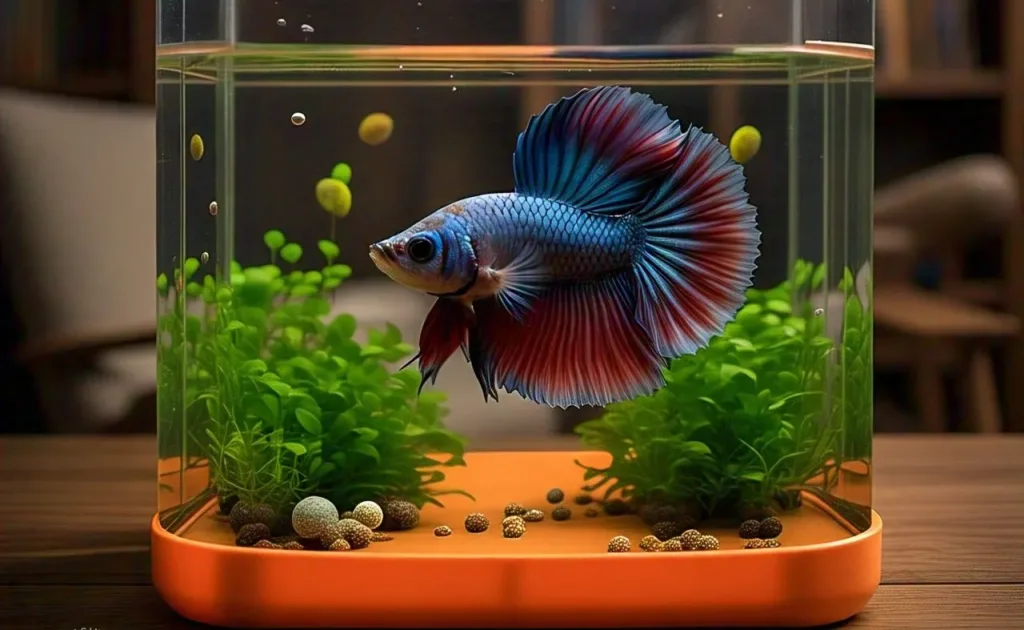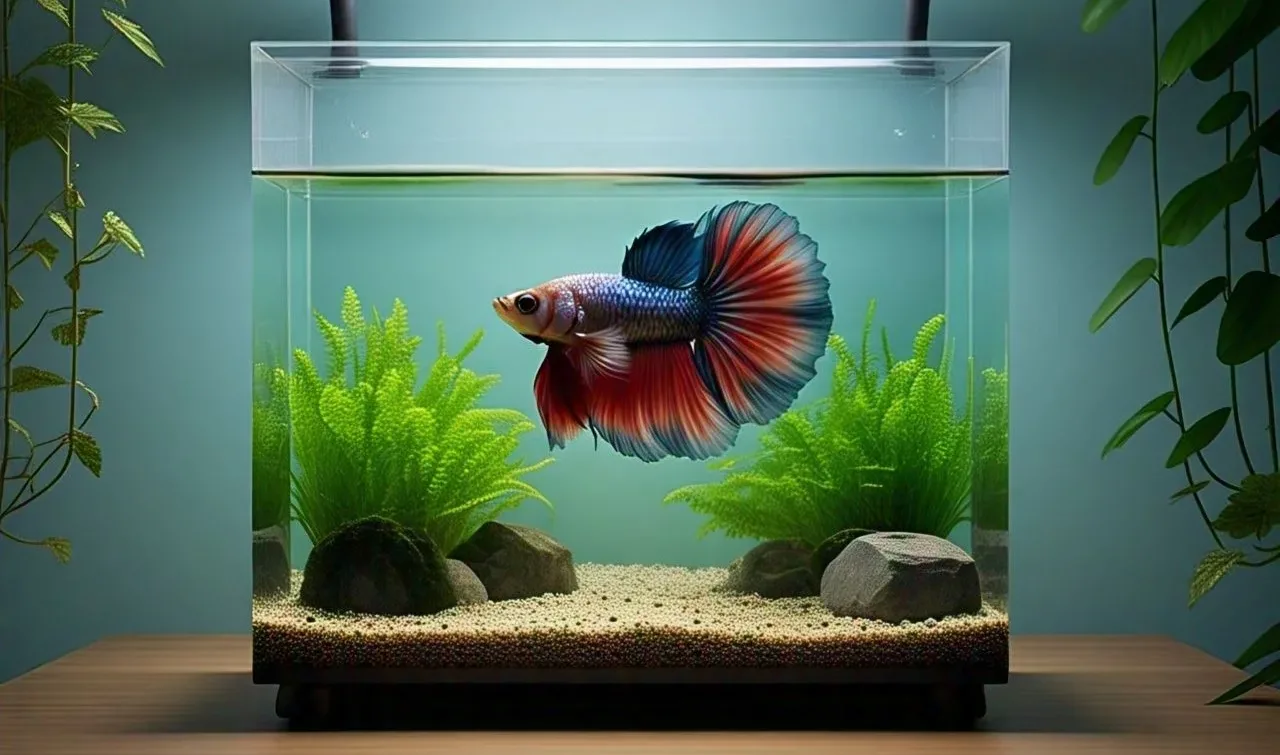Unsanitary conditions, such as excessive bacteria, toxins, or chemicals, can make betta fish susceptible to harmful diseases like bacterial infections. When an infection occurs, it’s usually due to an overwhelming amount of harmful microorganisms in the water or the Betta’s weakened immune system. Stress and low immunity further increase the vulnerability of your fish, making timely treatment critical.
When harmful signs are noticed, prompt action can save your Betta. Timely treatment and proper care ensure most diseases remain curable. Start by addressing water quality in the aquarium—eliminate toxins, ensure cleanliness, and stabilize conditions to help your Betta recover.
Symptoms in Betta
A healthy fish is active and colorful, but certain signs may indicate a bacterial infection.
- One of the first things you might see is lethargy, where the fish seems tired and stays still for long periods. Sometimes, it may sit around near the bottom or on a leaf, occasionally flopping to one side.
- Other troubling behaviors include difficulty swimming or refusing to eat. These reactions suggest the fish is unwell, potentially suffering from swim bladder disorder, dropsy, or other complications.
Physical changes often follow these illness reactions.
- The betta’s vibrant color may fade, and its fins could become clamped, looking tight against its body.
- You might notice a cloudy slime falling off its body, or a slimy white layer covering it if there are problems with its protective slime coat. If the skin is affected, white patches, blotchy sores, or other abnormalities could appear.
Spotting these signs early and acting promptly is key to keeping your fish healthy.
Treat a Betta Bacterial Infection
Bacterial infections are common in betta fish, but they can be treated if caught early. Here’s a simple guide to help your fish recover:
Isolate Your Betta
If your betta is in a shared tank, move it to a separate tank. This will stop the infection from spreading to other fish.
Clean the Tank
- Remove debris and uneaten food.
- Change 25–50% of the water.
- Clean the decorations gently without soap.
Treat with Medication
- Use antibiotics like Kanaplex or API Furan-2. Follow the instructions on the label.
- You can also try adding aquarium salt (1 teaspoon per gallon). This helps reduce stress and fight infections.
Prevent Future Infections
- Keep the tank clean with regular water changes.
- Avoid overcrowding.
- Feed your fish a balanced diet.
With the right care, your betta can make a full recovery. Be patient and give it the attention it needs!
How Does a Bacterial Infection Occur?

It’s unclear exactly how a betta fish contracts an internal bacterial infection, but several factors make them susceptible to it.
When their immune system is weakened, often by chemicals or toxins in the water, it becomes easier for bacteria to invade.
One of the serious signs of an infection is dropsy, a condition where the fish’s organs begin to fail, sometimes due to the presence of both toxins and bacteria. Unfortunately, once a betta contracts this, there’s no going back, and their health continues to deteriorate as the infection spreads.
And also can happen when the tank water is dirty or the fish has a wound or injury. Stress, poor diet, or sudden changes in water conditions can also weaken betta fish, making it easier for bacteria to attack.
FAQs
- How Do You Treat Bacterial Diseases in Fish?
To treat bacterial diseases:
- Quarantine the sick fish to prevent spreading.
- Keep the water clean and warm (around 78°F/26°C).
- Use an antibacterial medication like API Furan-2 or Seachem Kanaplex.
- If the fish has wounds, apply a liquid antibacterial remedy like Methylene Blue or Melafix.
- How Often Should I Change Water for a Sick Betta?
For a sick betta, change the water every 2-3 days to keep it clean and reduce stress. Always use dechlorinated water and ensure the temperature matches the tank to avoid shock.
- How Long Can a Sick Betta Go Without Eating?
A sick betta can survive up to 7 days without eating but try to offer small, high-quality meals like pellets or frozen food. If the betta refuses food for more than a week, it’s time to seek advice from a fish expert or vet.
- Does Salt Help Sick Betta Fish?
Yes, adding aquarium salt can help sick bettas. It fights bacteria, reduces stress, and improves gill function. Use 1 teaspoon per gallon, but dissolve the salt first and only add it to tanks without live plants or sensitive tankmates.
Conclusion
In conclusion, bacterial infections in betta fish are treatable if you act quickly and give the right care. Keep an eye on your fish for early signs of illness, like sores, torn fins, or a lack of energy. If you notice something is wrong, isolate the sick betta, clean the tank, and use proper medications or aquarium salt to help it recover.
Prevention is always better than cure, so maintain a clean tank, feed your betta a healthy diet, and avoid overcrowding. With patience and good care, your betta can return to being healthy and happy.
